One year after Ibrox
Report on the last match in front of a full house
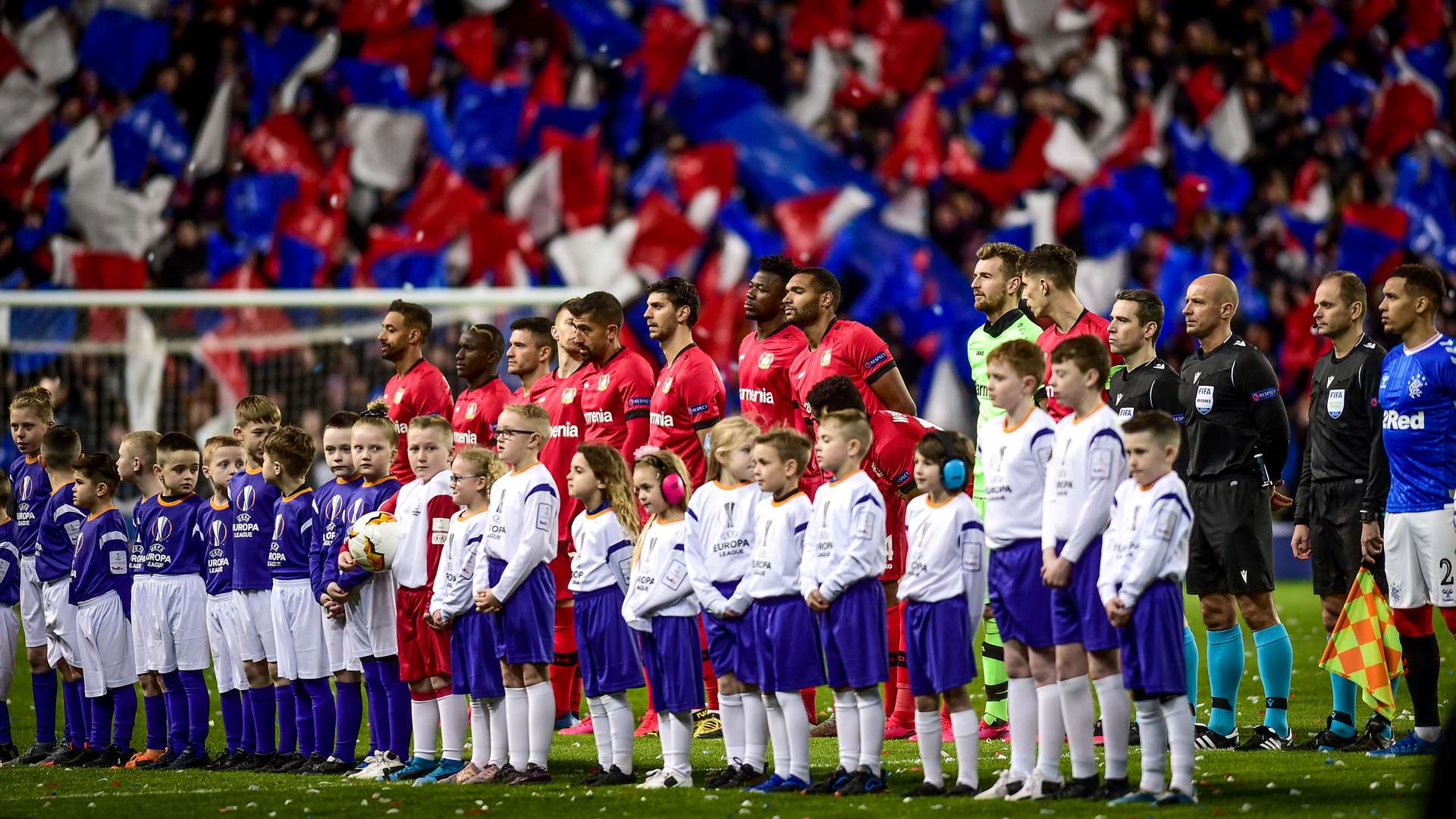
It was the last European game with spectators before the lockdown. Exactly one year ago, on 12 March 2020, the Werkself played Rangers in the first leg of the Europa League Round of 16 tie. While the legendary Ibrox was full of excited fans, the coronavirus pandemic had brought social life to a standstill in almost all of Europe. In a report, which appeared in addition 25 of the Werks11 Magazine, we look back at the 60 hours between the excitement of football and a deadly virus that now shapes our lives…
There is great excitement before the aircraft lands at Cologne/Bonn Airport. It is Friday, 28 February. The Werkself had beaten Porto 3-1 away the night before to qualify for the Round of 16 in the Europa League. While the team and the whole delegation prepared to land, the Round of 16 ties are being drawn in Nyon in Switzerland. Didi Hamann unfolds the paper and holds it up to the camera: Rangers FC (SCO). Excitement and happy faces in the charter flight from Porto to Cologne/Bonn. Rangers, the record Scottish champions, the legendary Ibrox, goose bumps when 50,000 singing Scots drive their team forward. A dream draw for ground hoppers and nostalgic football fans. The sense of anticipation for the Black and Reds is great, the subject of coronavirus far away – Covid-19 infections in Germany on 28 February: 30.
Deserted departures hall at Cologne/Bonn Airport
And everybody is ready to go two weeks later. Wednesday, 11 March, one day before the away game at Rangers. The final pre-match training session ahead of the Europa League clash has to take place in Leverkusen. It had rained too much in Glasgow and there were concerns about the playing surface. But the first leg on the next day is to be played in front of spectators. While the matches in Seville and Milan are already postponed due to the coronavirus pandemic and Frankfurt plus Wolfsburg are playing in front of empty stands, Ibrox is nearly sold out for the next day: 47,494 people can hardly wait for the clash. However, at the airport members of the Leverkusen delegation noticed that this is not a "normal" European trip. The departures hall is almost completely deserted at two o'clock in the afternoon. Only individual travellers move almost silently cross the floor tiles. Where previously people involved with Bayer 04 would hug each other, slap backs or at least shake hands, this time there is distancing. Sanitiser given away along with matchday scarves and pocket guides is quickly snapped up. Discussions alternate between the forthcoming match and coronavirus.
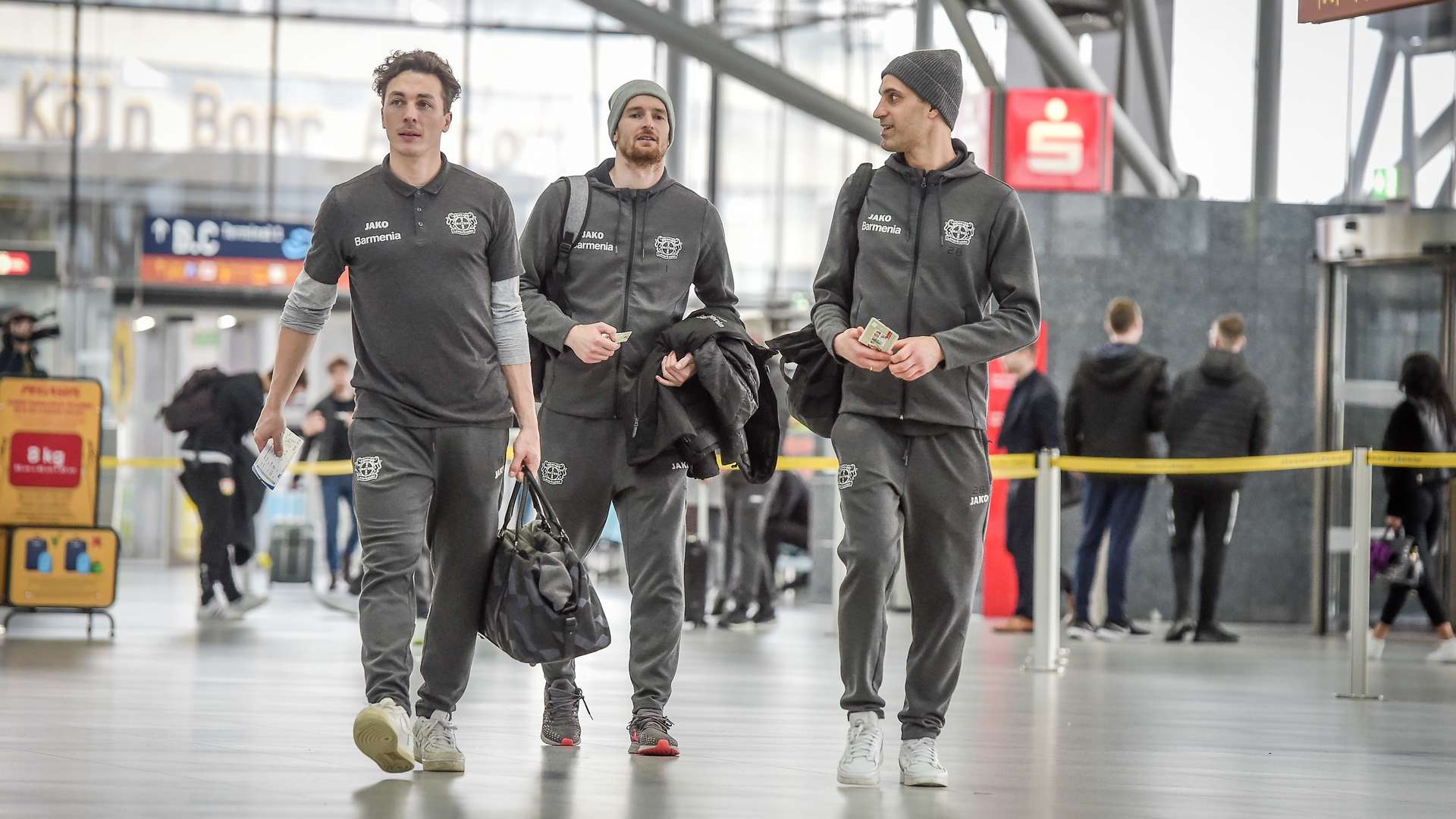

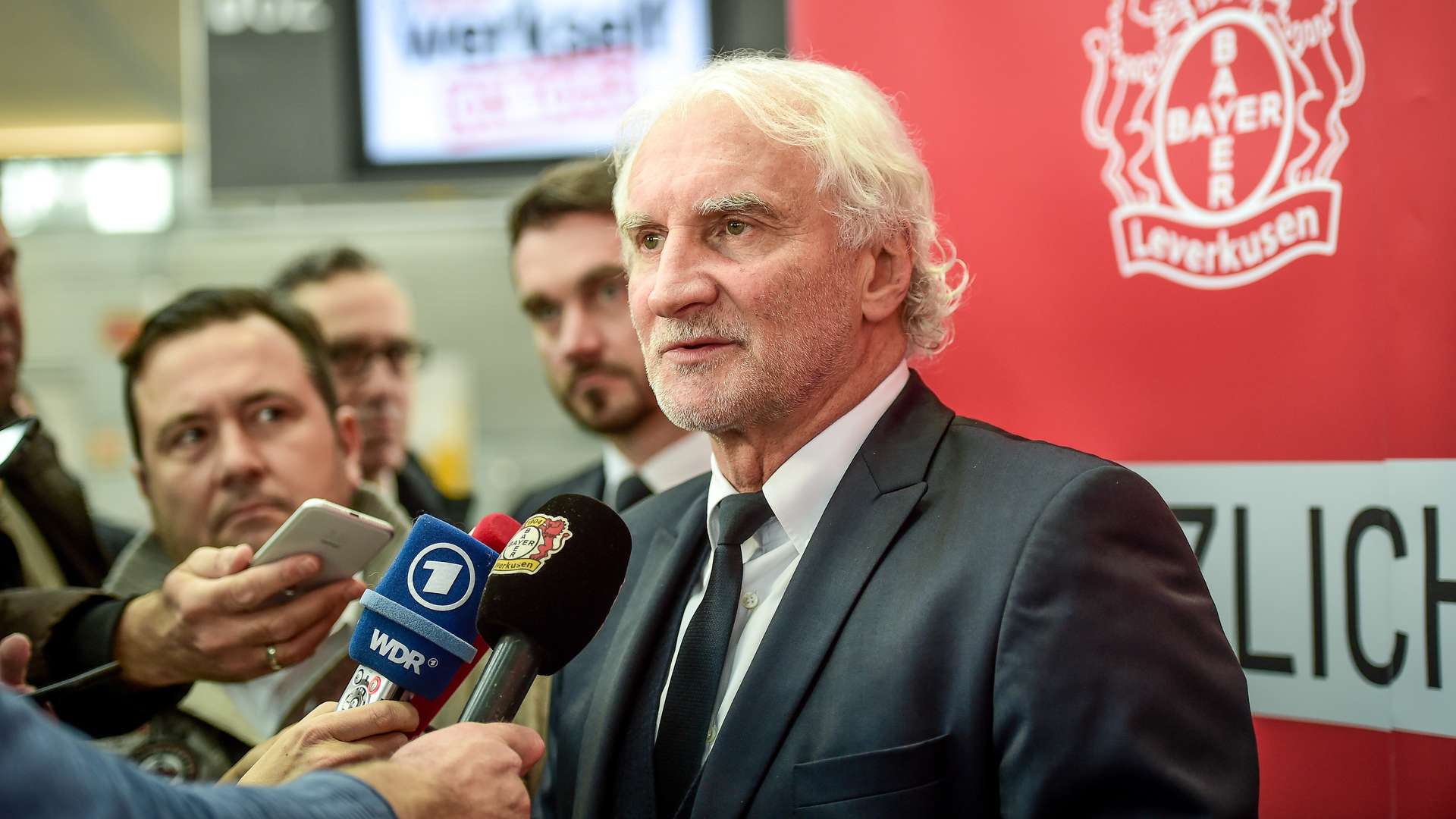
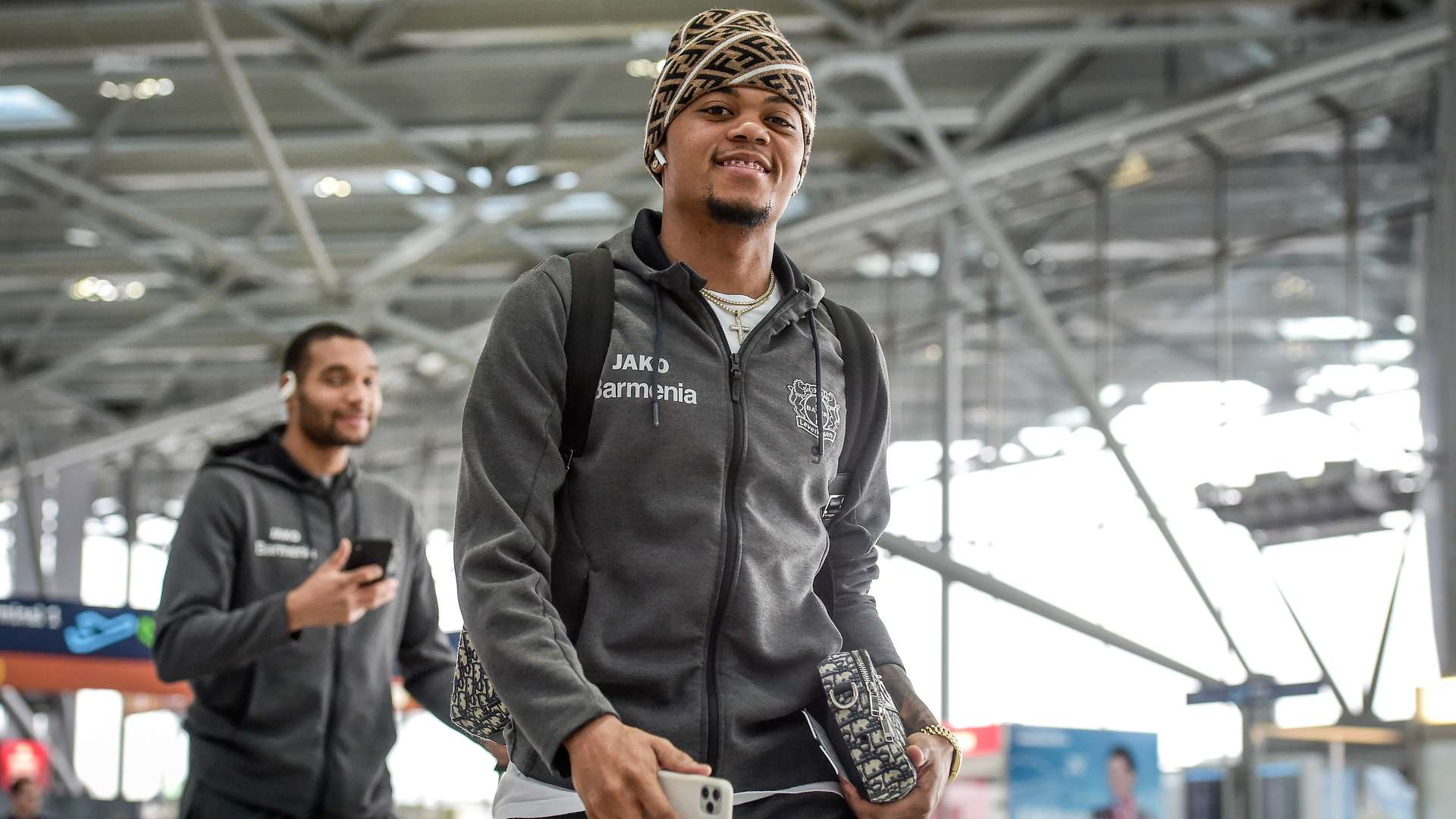
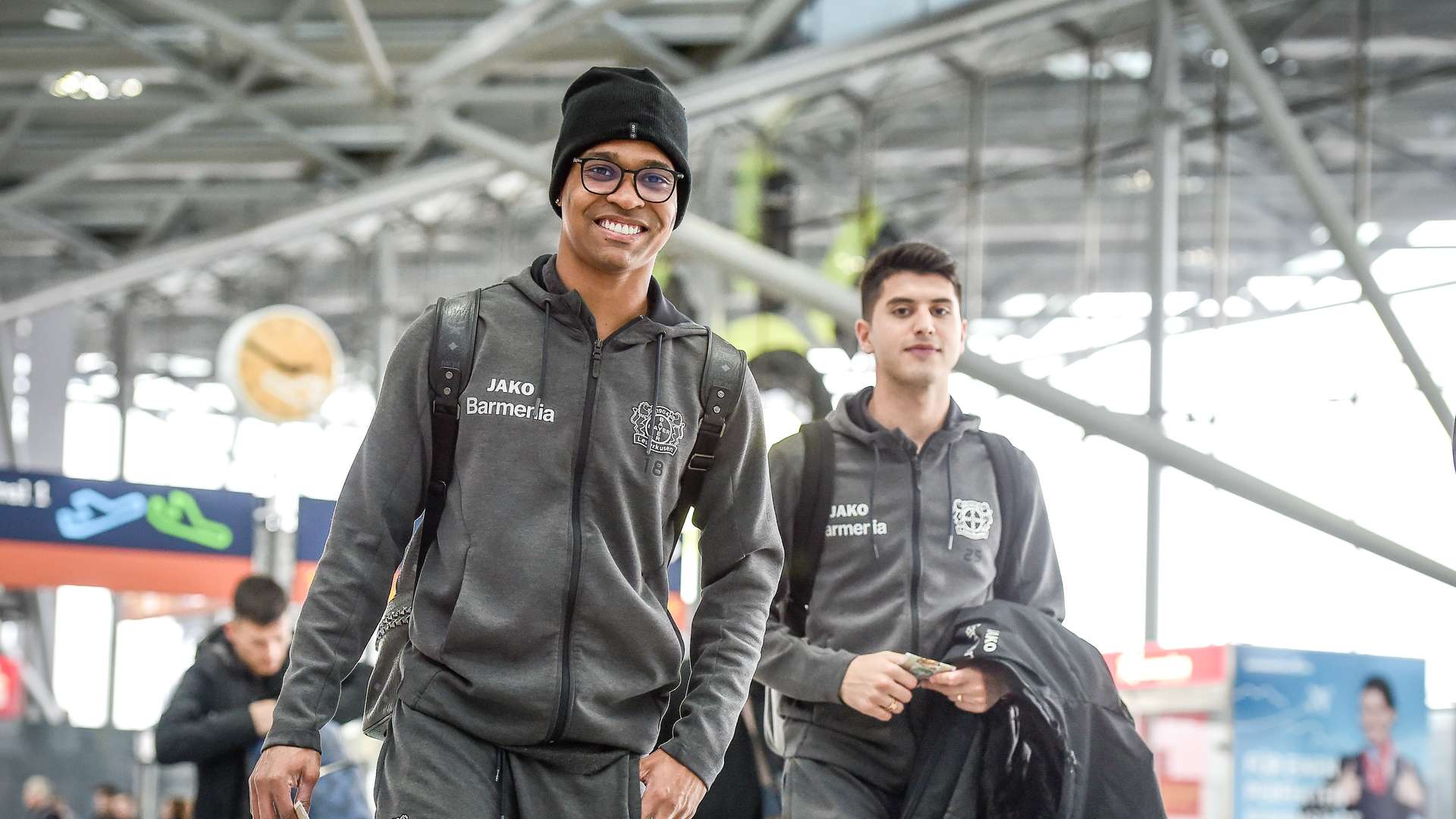
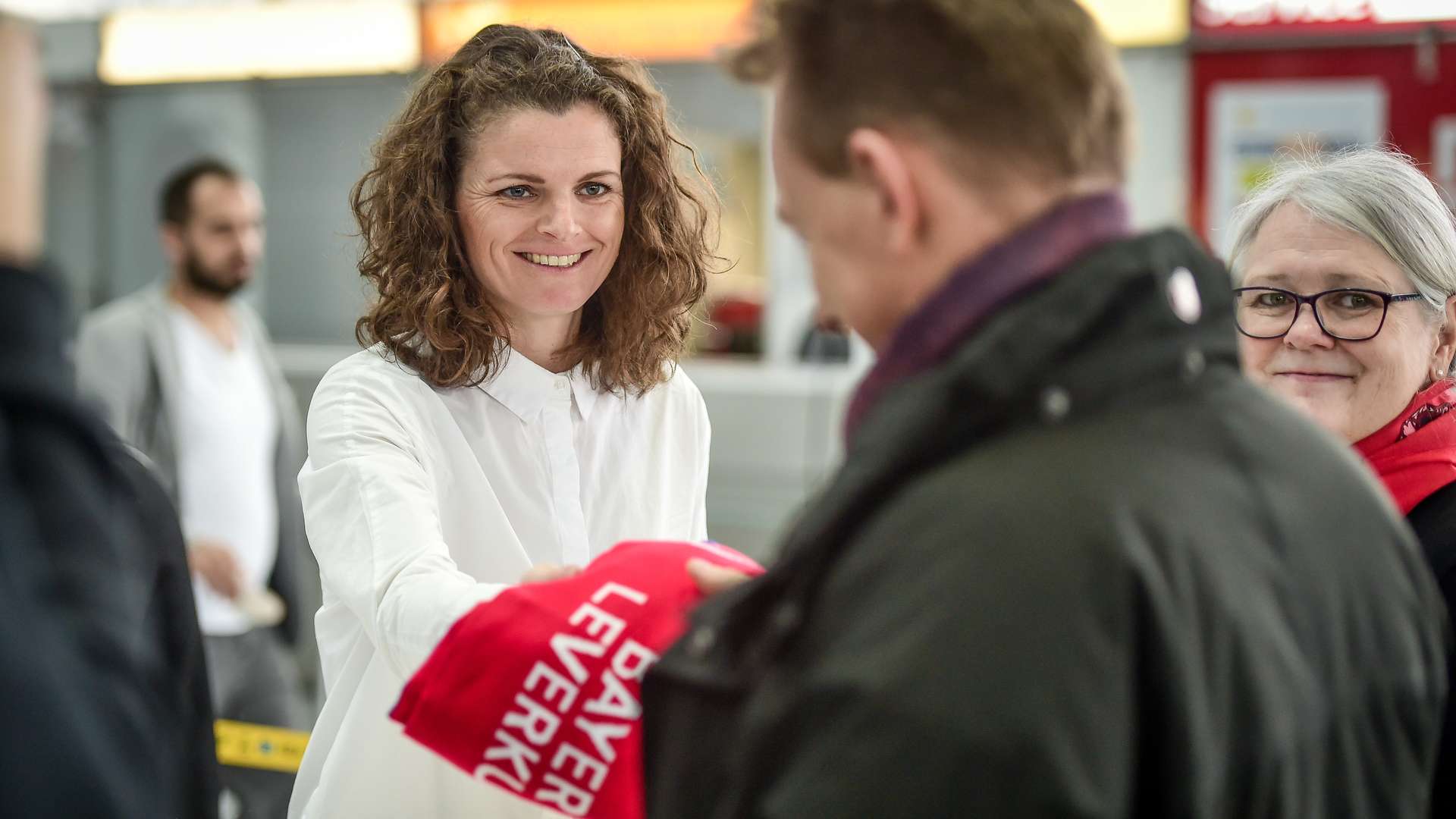
Up to four o'clock on that day, 801 Covid-19 infections were registered in North Rhine-Westphalia; three of those people died as a result of the infection. The state government announces that large-scale events with 1,000 or more people are banned; and Federal Chancellor Angela Merkel defends the decision of the local authorities to have Bundesliga fixtures played behind closed doors at the weekend. The mobile phone, connection to the outside world, which is increasingly concerned with coronavirus, disappears into the pocket. Back to the airport, back to subjective reality: on boarding the plane, team doctor Dr Karl-Heinrich Dittmar, who is also the pandemics officer at Bayer 04, measures the temperatures of the travelling party. Unusual but understandable in view of the notifications coming through to smart phones every minute.
Ibrox: A football dream in Blue and Brown
Aeroplane mode on the aircraft. The subject of Covid-19 is heard on flight X3 8904 but it is not the number one topic for discussion. Sporting questions move centre stage. What line-up will Peter Bosz choose tomorrow? What changes will there be in comparison to the 4-0 win against Frankfurt? What will be the effect of the absence of Lucas Alario and Daley Sinkgraven? The discussions are lively, the anticipation at the Ibrox experience increases as the journey continues. The flight to Glasgow covers 1,000 kilometres and lasts around 90 minutes. After landing, it is straight off to the stadium. The brown brickwork, where football clashes have taken place since 1899, creates a special impression. Even without spectators, this venue has a particular fascination. Outside - industrial heritage, inside - a football dream in Blue and Brown. Narrow walkways with wood panelling and pictures everywhere of the glorious past of Rangers Football Club bear testament. And there is a formal greeting at the reception. "Welcome to Ibrox," says a club official in a suit. The greeting from a colleague in the Rangers press office also comes with a smile but is rather direct for the British: "We know it's rude. But we are not allowed to shake hands with you. Advice from our medical department."
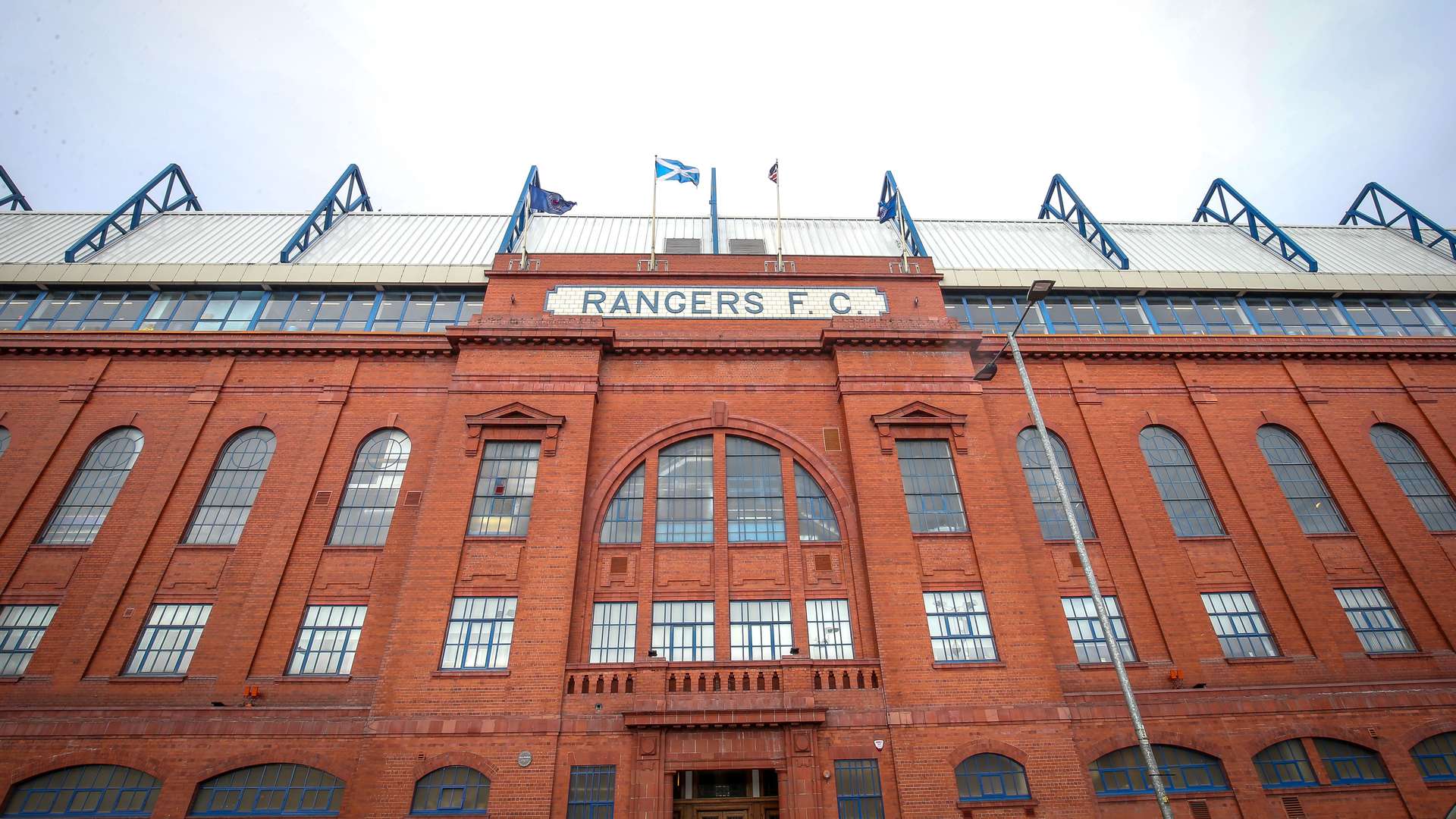
Later in the evening, in a typical pub, the subject of coronavirus disappears in Scottish mist. With haggis, a single malt and an Angus fillet of beef, the travel group from the Rhineland enjoy Scottish hospitality. The mobile phone batteries are dead and everybody is in the here and now.
The next morning, mobile phones are recharged and connection restored to the world of coronavirus. The UEFA security meeting is part of the the usual football routine but there are discussions at the team hotel. How dangerous is this virus? Is coronavirus really much more dangerous than flu? Are the measures taken appropriate? Who will Rangers play in holding midfield? – No idea.
All clear just a few hours before kick-off
Normally, the morning of matchdays provides the opportunity to discover the current European competition destination. But walking through Glasgow it becomes clear: There are fans in Bayer 04 shirts but they wander aimlessly over George Square, past St Mungo's Cathedral and give Kelvingrove Art Gallery and Museum a wide berth. Instead they stare at their mobile phones. A Real Madrid basketball player tests positive for Covid-19: The club sends their basketball and football players into self-isolation. Tom Hanks and his wife Rita Wilson are also affected. They are in Australia. The pandemic appears to be engulfing everything. In the afternoon, the German media receive a notification from the Spanish daily, MARCA: "UEFA stops matches in the Champions and Europa Leagues."
It is hectic at the team hotel. Contacts at UEFA are called up. Have we made the journey to Glasgow in vain? Do we have to fly home without having achieved anything? Journalists call up. Fans get in touch via WhatsApp. Shortly after that comes the all clear: The game is on. In front of a crowd.
On the one hand relief, as we have flown to Glasgow for those reasons, and playing the game suggests "normality" in crazy times. On the other hand, everything feels surreal and uncertainty grows from message to message, from tweet to tweet, from breaking news notification to breaking news notification. Finally, in the afternoon, comes the coach journey to the venue for the Europa League clash. Familiar routines and you are allowed to function again.
The stadium comes into view. The floodlights are already on. There is nobody inside but the venue made of brick and steel already appears to be full of excitement. Through creaking wooden doors you come to the spacious press conference room. The video colleagues are filming the arrival of the Werkself from a wooden staircase in the foyer of the reception that is more reminiscent of a traditional hotel rather than a football stadium. The porter – or rather the Rangers official greets the visitors as on the day before: "Welcome to Ibrox."
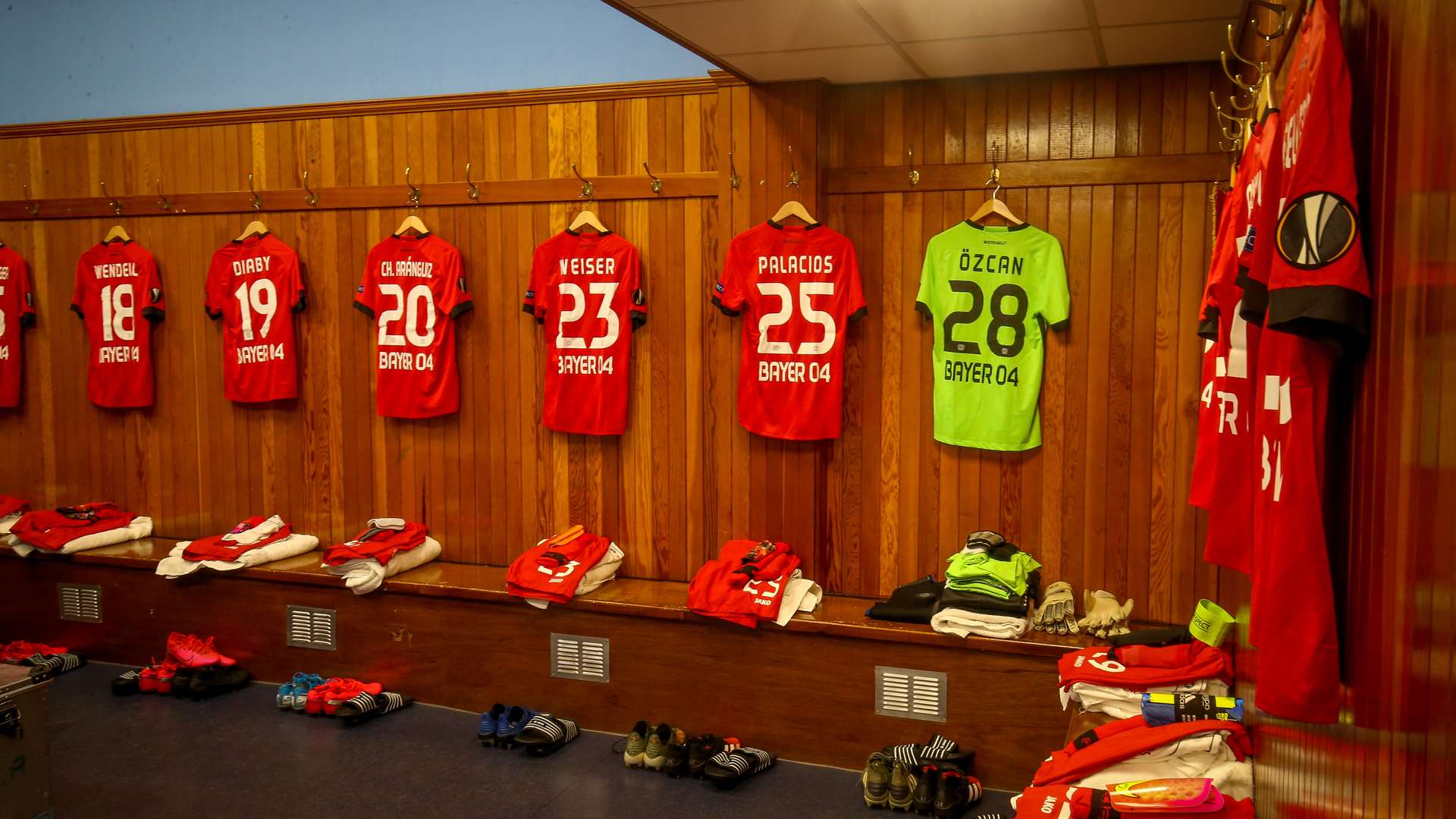
The dressing room gives the impression of being in a venerable district sports facility. Social distancing is impossible with all the wood, blue cast-iron bath and showers where the heroes of Bern probably stood. Half an hour before kick-off it is off to the press box. In most of the German stadiums, these are sited well away from where the fans sit but at Ibrox spectators can almost read what the journalists are writing on their laptops, perched on small wooden tables. The colleagues from Werkself Radio get to experience how it feels when the diehard Rangers supporter is unable to see their team for a few seconds. "Hey, sit down!", Is one of the more polite comments for the standing commentators who quickly take a pew. "Welcome to Ibrox…"
Kai scores from the spot – despite a chorus of whistles
The fantastic atmosphere, which was talked about again and again in the build-up, is almost physically palpable as the two teams run on. It feels as there is not a single fan at Ibrox who isn't shouting for their life to give the team coached by Steven Gerrard a final spark of motivation. But the Werkself remain calm and rely on their footballing strengths. The chorus of whistles when Kai Havertz steps up to take a penalty on 37 minutes hurts your ears – but that does not appear to affect the penalty taker at all. Coolly slotted into the bottom left corner – "You're welcome!."
Coronavirus makes itself known again at half-time. The venue: London. Breaking news in the press room: Mikel Arteta, coach of the Premier League club Arsenal, has tested positive for Covid-19. The whole team and staff have to self isolate. For many journalists it is clear: That's it. Game over.
On the pitch, a Chilean appears to have sealed the result: The rifled shot from 15 yards out from Charly Aránguiz makes it 2-0 just after the hour mark and briefly silences Ibrox. Defender George Edmundson comes up to score from a corner to make it 2-1 and all the Rangers fans stand and yell their team on. It's obvious why this club is so difficult to beat at home – ahead of the match, 'The Gers' were unbeaten in 17 European games.
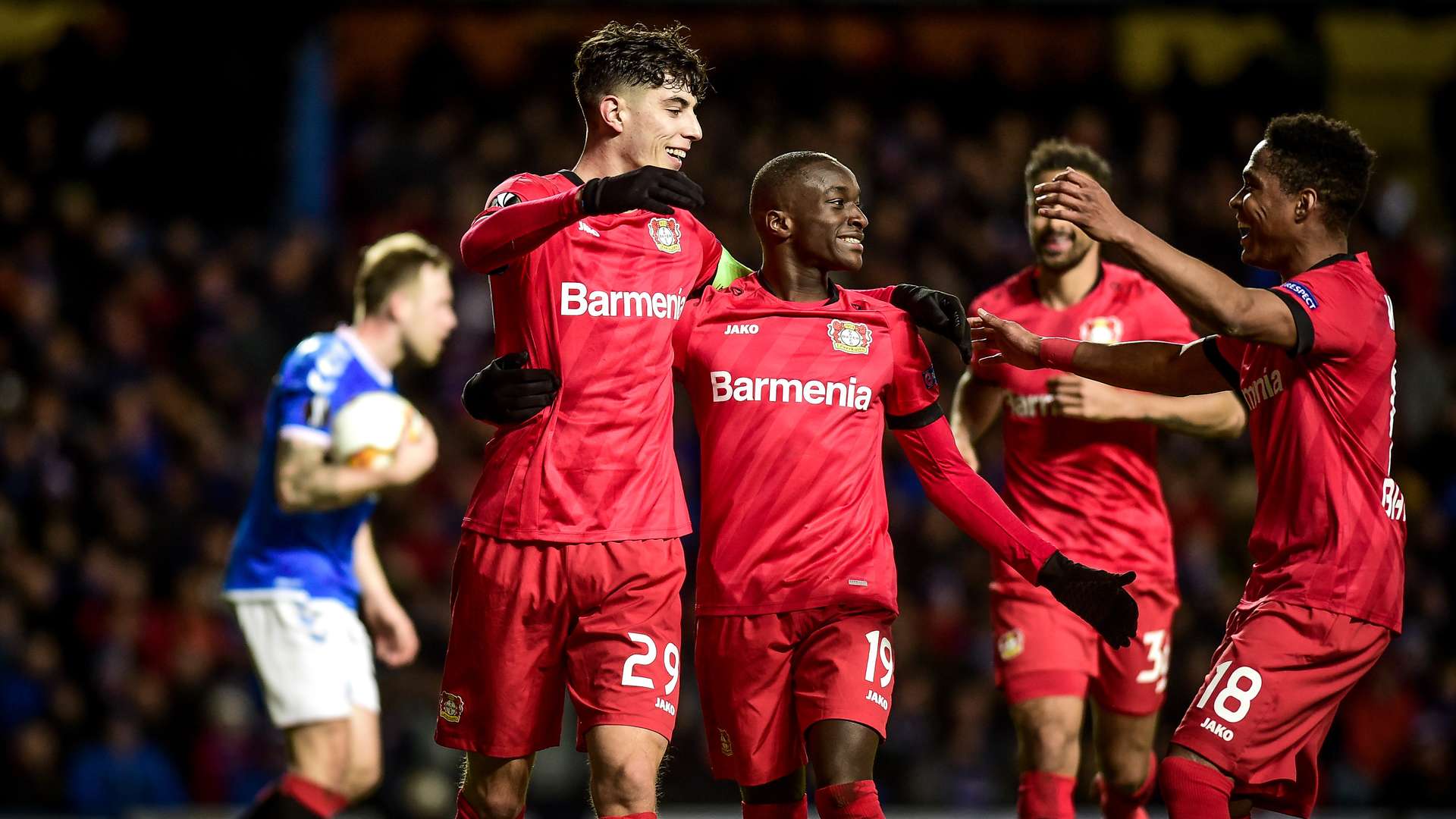


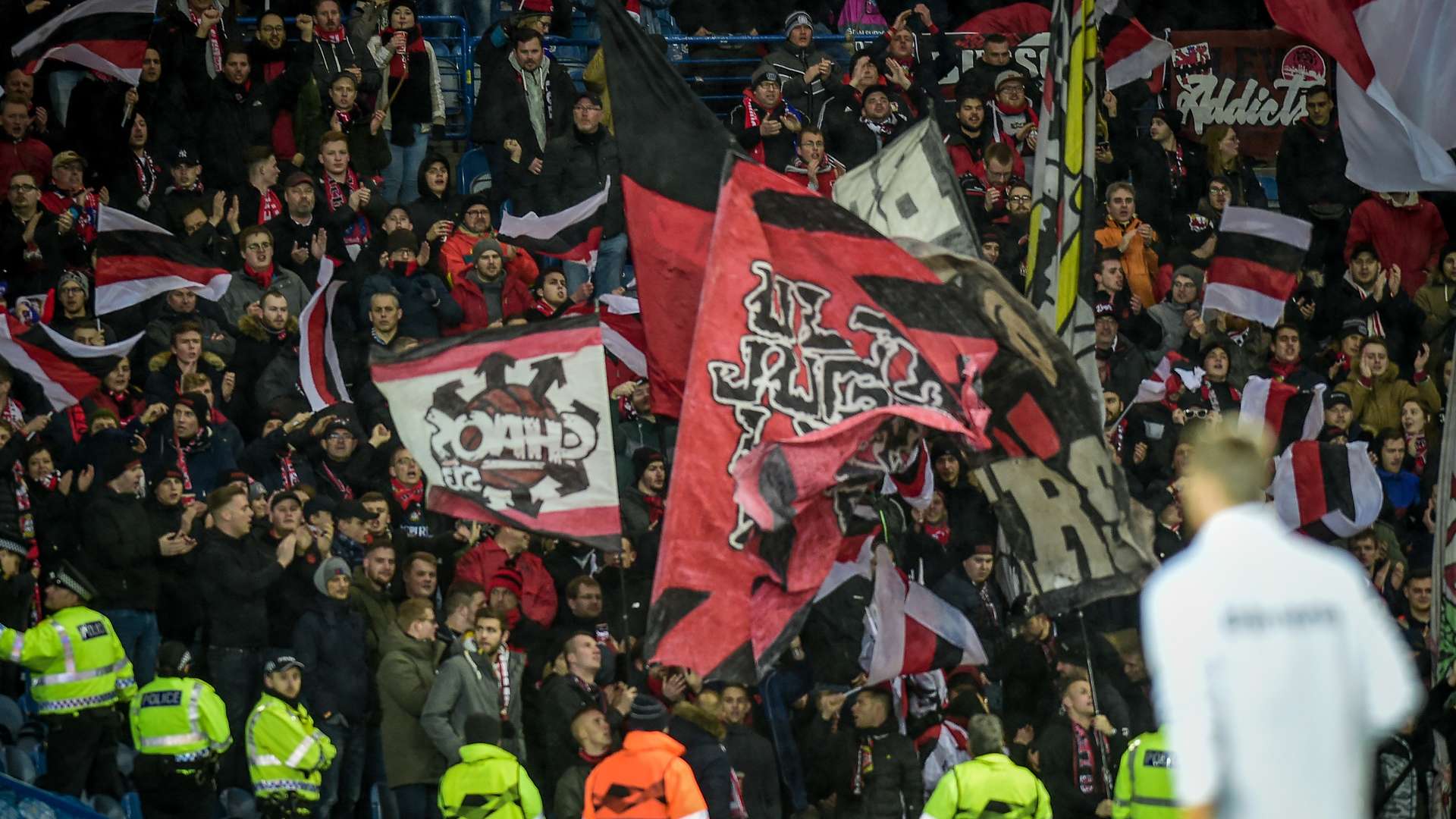
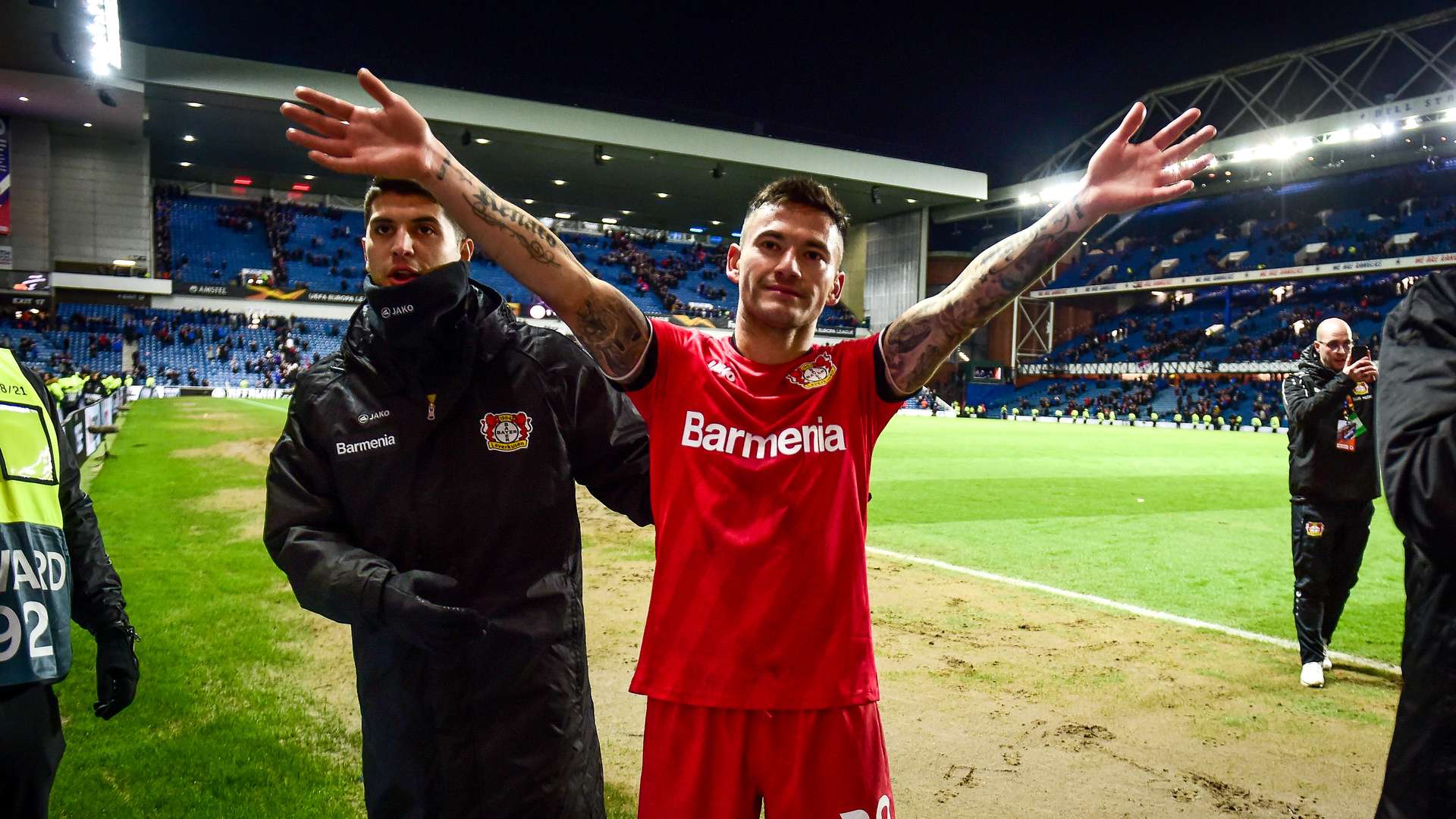
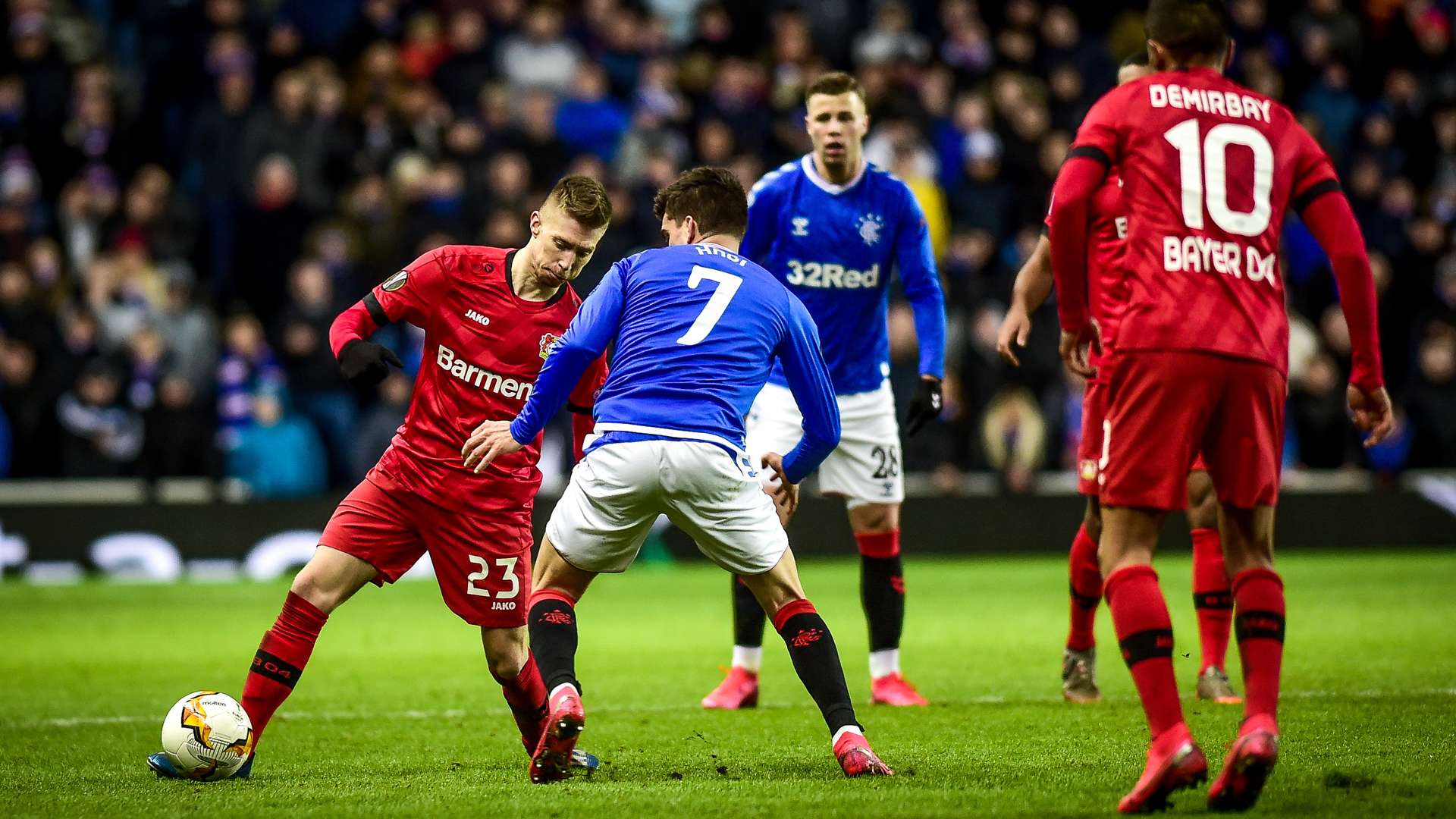
Leon Bailey appears to be unaware of this information on 88 minutes. He beats his opponent in the box and chips the ball into the net to make it 3-1. Ibrox is silenced, the Leverkusen fans celebrate. But when the players want to get onto the hoardings to celebrate with the fans, coronavirus intervenes: Havertz and Co. have to maintain a distance of two metres from the supporters to avoid the possibility of infection. Nevertheless, there is celebration. Based on 'A Touch of Class': "Shalalala – Oh – Bayer – Le – ver – ku – sen…”
After the game: Questions about the virus proliferate
And it is clear in the Mixed Zone that the 90 minutes have taken everybody present away from the everyday but the pandemic and the associated safety measures quickly return. The Rangers players do not go through the interview area; Bayer 04 nominate two players who answer questions two metres away from the journalists. Just after the game increasingly on the issue of the virus. And Jonathan Tah hits exactly the right note. Asked about the possibility that the Europa League campaign may be suspended, be 24-year-old answers: "If that helps people then we are fully behind it. It's not about titles but about health. That's more important. We all see it like that."
Happy but also exhausted and very reflective. With those feelings, it's back to the airport. Charter flight X3 8905 lands at Cologne/Bonn Airport at 02.55. Shortly before landing, it is completely quiet in the aircraft. No celebrations, no excited voices. The joy for the Black and Reds at the victory has dissipated and the subject of coronavirus is pervasive – Covid-19 infections in Germany on 13 March: 3,062.
A few hours after landing on Friday, the Monday night game at Bremen is postponed. The Bremen Senator of the Interior fears that over 1,000 fans will congregate in front of the stadium for the game. The German Football League (DFL) follows suit and postpones the whole matchday.
This report is from Werks11 Magazine #25 Click HERE for the free online edition.
Video highlights of the win at Ibrox:
